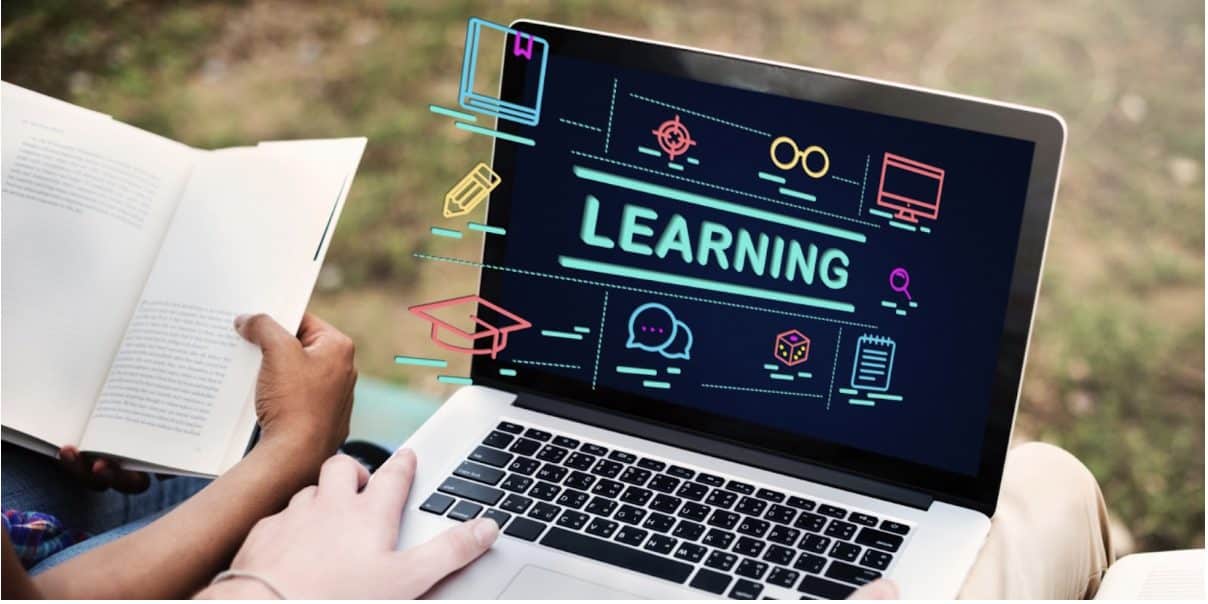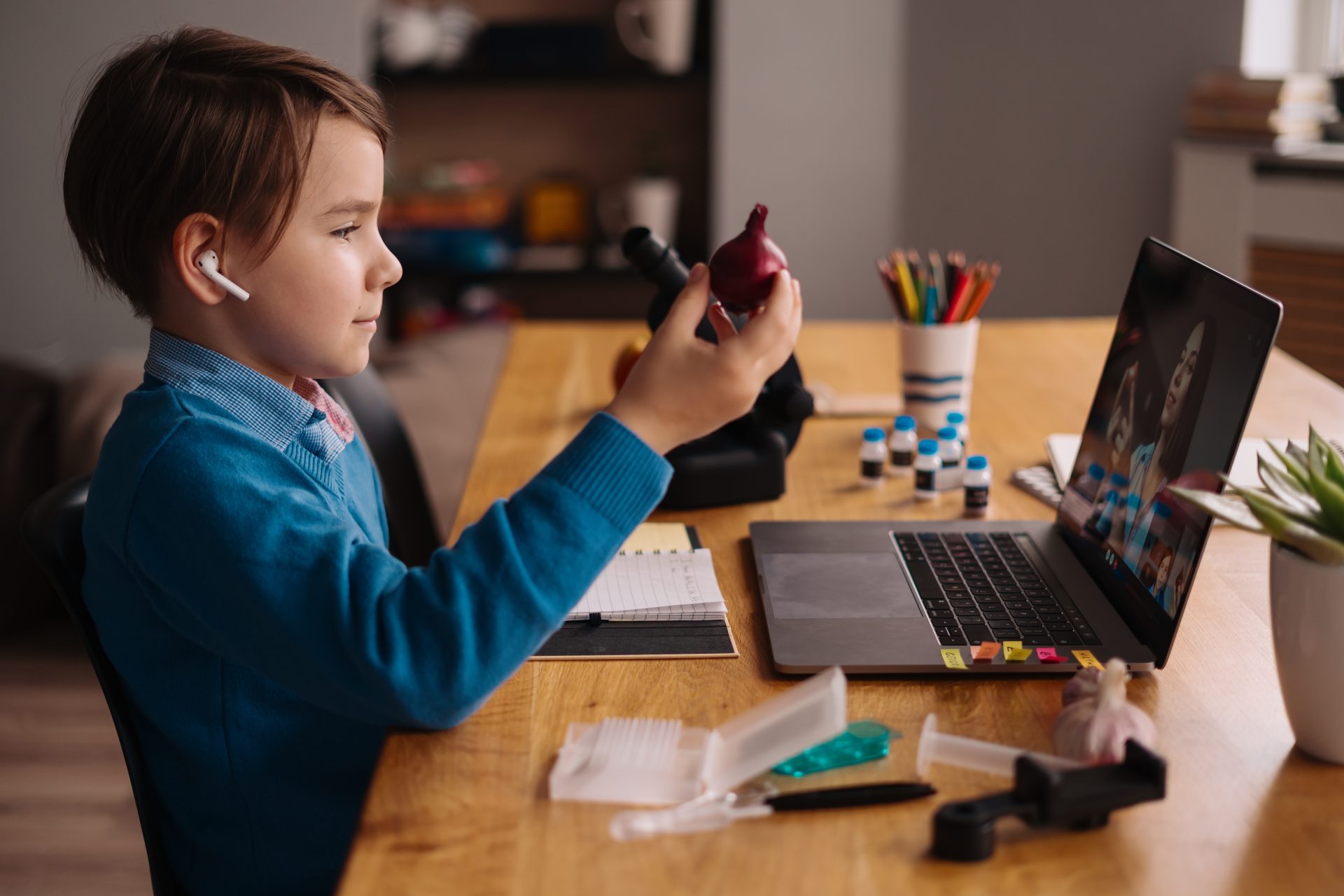Contents
- 1 Reasons to Homeschool Travel
- 2 Homeschooling Laws While Traveling
- 3 How Traveling Changes the Homeschooling Game?
- 4 How Do You Plan Homeschool Travel?
- 5 How Do Kids Socialize?
- 6 What Should Parents Consider During Homeschool Travel?
- 7 What Does Legacy Online School Offer for Homeschool Travel?
- 8 Conclusion
Online education has become a popular solution for families with different needs and lifestyles. One of the most important advantages of online education is the opportunity for students to learn from anywhere in the world. Children continue their education, even when the family is on the move.

Homeschool traveling is a form of education in which families travel around the world. This type of education helps parents whose jobs often require business trips. Homeschool travel gives children a chance to explore different countries and cultures and continue their studies.
Reasons to Homeschool Travel
“We started homeschooling our kids to travel. We’ve bonded as a family, and they’re learning through unique experiences”
Terri Peters, Business Insider
Homeschool travel offers families a unique opportunity to mix education with real-world experiences. Here are five reasons why homeschool travel is the right choice for the family.
Maintaining Social Connections
Homeschool travel allows children to maintain their usual social circle of classmates and teachers when the family moves to a new place. This opportunity helps children feel comfortable with frequent relocations. Students don’t need to adjust to a new group of peers.
Strengthening Family Bonds
This type of education allows families to travel together. Parents don’t need to find relatives or friends to look after the child during trips. Traveling together gives unique experiences and adventures shared by parents and children. The trips unite families.

Cultural Exposure
Traveling allows children to visit different cities and countries. Students discover local cultures and lifestyles. This discovery gives them a good understanding of how people live. This experience broadens their horizons and makes the learning process more engaging.
Developing Social Skills
Students get to meet people from different backgrounds. Children develop their social skills in a global context through these interactions. Kids learn to communicate effectively, practice empathy, and adapt to new environments.
Practical Life Skills
Homeschool travel gives the opportunity for the children to go through the various settings in life, which help to teach them how to live practically. Students learn about things happening in real life through experiences from homeschool travel. It develops in students the ability to fit into situations, solve problems, and work independently.
Homeschooling Laws While Traveling
Understanding the legal requirements of homeschooling in different locations is crucial when families plan their homeschool travels. The following are basic things to note when having a homeschool trip.
Accreditation
Make sure the homeschool program a child is enrolled in holds accreditation from a recognized educational authority. The accredited programs help minimize the headache of presenting the education records to the authorities.
Local Homeschooling Laws
Each country or state takes a different position on the issue of homeschooling. Some places require formal registration, while others have more relaxed guidelines. Parents avoid many legal complications when researching the local laws of the area where they will be traveling.
Educational Records
Many regions require detailed records of a child’s education, including lesson plans, attendance logs, and progress reports. The documentation must be translated into the official language of the country being visited. Organized records make it easier to meet the requirements without problems during travel.
Travel Insurance
Make sure travel insurance covers education-related needs. The covering includes a child’s schooling, access to learning resources, or accidents affecting children’s ability to study. Having this protection allows families to focus on children’s educational experiences without the worry of unexpected situations.
Health and Vaccination Regulations
Some countries have specific regulations in regard to vaccination or other health matters for school-going children. Make sure a child’s health records meet these standards while traveling. Being informed about these regulations helps avoid problems at borders, where checks can happen.
Country Regulations
Country regulations are entry rules foreigners must adhere to when visiting a country. Some countries have strict rules about the length of stay and educational status of children, while others don’t. Following these regulations helps parents meet requirements and travel without any problems.
How Traveling Changes the Homeschooling Game?
|
Parents, Take Note
The research “Homeschooling: The Research” shows home-educated students are doing well, typically above average, on measures of social, emotional, and psychological development. Research measures include peer interaction, self-concept, leadership skills, family cohesion, participation in community service, and self-esteem
|
Traveling changes homeschooling by providing hands-on learning experiences. Let’s see ho traveling improving traditional homeschooling:
- Childrens have a chance to see new traditions, languages, and lifestyles they wouldn’t get from books alone
- Students visit historical landmarks and monuments, which gives them a direct connection to the past and a deeper perception of history
- The motivation in children’s studies increases if they are able to see and experience the subject themselves
- Kids practice new languages in real-world settings ang get “live” knowledge of every city they visit
- Traveling helps children become more independent and confident as they face and adapt to new situations
How Do You Plan Homeschool Travel?
Homeschool travel is an opportunity to combine theoretical knowledge with practical visits to places and small experiments. Planning guarantees learning and travel experiences go smoothly. Here are some tips to plan homeschool travel.

Right Locations
Choose locations connected to what your child is currently studying. Visit a historical site if you’re learning about history, or plan a trip to a city being discussed. Plan to give your child more practical experience.
Local Regulations
Understand the homeschooling regulations of the countries or states being visited. Make sure to comply with local education requirements, such as registration or testing obligations.
Balanced Schedule
Develop a schedule balancing learning with trips. Try different approaches to balance learning until you find one which helps your child develop well while also allowing enough time for rest.
Educational Materials
Prepare your child for the trip by providing educational materials and items they will need for learning in advance. Have solutions ready for potential issues like a broken laptop or poor internet connection.
Educational Records
Keep records of lessons and maintain notes on your child’s learning. All these materials may be needed if your state or the country you are staying in requires proof your child is receiving homeschooling.
Time Zones
Don’t forget time zones vary between countries and cities. Plan for the differences in advance so your child’s rest and learning schedule aren’t disrupted.
Health and Safety Precautions
Study the regulations and potential issues of the country you’re visiting. Follow travel safety recommendations and implement any necessary precautions, such as getting timely vaccinations.
Right Places
Consider whether a suitable place for learning will be available during your travels. Outdoor settings do not always encourage focus due to noise or other distractions. Book a coworking space or another quiet area where your child can concentrate on their studies.
How Do Kids Socialize?
Online homeschooling is problematic for kids in socializing. Here are some tips for supporting socialization while traveling and homeschooling:
- Connect kids with local communities by participating in cultural events, local clubs, or activities such as sports, arts, or language classes
- Join homeschool travel groups or meet other traveling families to connect with other kids
- Participate in virtual meetups, clubs, and group projects
- Participating in volunteer work
What Should Parents Consider During Homeschool Travel?
Parents consider many factors and take various steps to create a positive experience for their child. Here are six things parents do first:
- Create a balanced schedule for learning and traveling
- Plan a budget covering all the expenses
- Monitor the child’s condition and add rest when needed
- Have a backup plan for technical and other issues to avoid interrupting learning
- Teach children about the importance of respecting local regulations and culture
- Stay informed about health and safety requirements
What Does Legacy Online School Offer for Homeschool Travel?

Legacy Online School has a good educational program for homeschool. Students have access to a wide range of educational materials through online classes. This includes core subjects and electives, all meeting accredited educational standards. The school is accredited by the Western Association of Schools and Colleges (WASC). This accreditation confirms the education provided meets high standards and is recognized globally.
Legacy Online School offers a variety of extracurricular activities. These activities help students get practical experience and socialize with other children.
Legacy Online School provides a supportive learning environment with certified teachers guiding students through their learning. Teachers at our school are always ready to help students and make even the most difficult material accessible to everyone.
Legacy Online School has all you need for smooth homeschool travel. Enroll your child now!
Conclusion
Homeschool travel provides an opportunity for families to combine education with trips. We detailed how this opportunity allows children to study and learn new cultures. The experts at Legacy Online School will be happy to answer any questions regarding homeschool travel. Enjoy this adventure and make the most of what homeschool travel has to offer!











